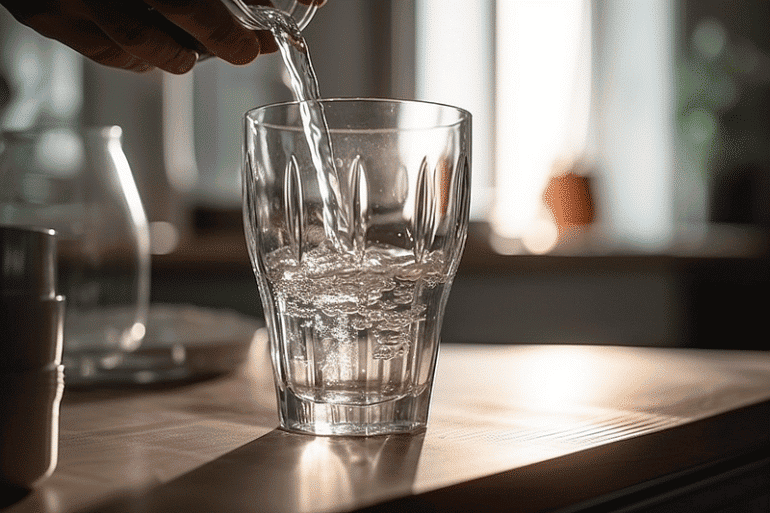How lime water can affect your health
If you drink water that contains lime, it can have an impact on your health. Lime water contains high concentrations of calcium and magnesium, which are important for our body, but in large quantities can also have negative effects. For example, high levels of calcium in water can impair the absorption of iron and zinc, which can lead to deficiency symptoms.
In addition, calciferous water can lead to clogging of the arteries and increase the risk of cardiovascular disease. For this reason, you should check the quality of the water and filter it if necessary to ensure that it does not have any harmful effects on your health.
Another problem that can be caused by hard water is the formation of limescale deposits in household appliances and pipes. Not only can these deposits lead to clogged pipes, but they can also contribute to appliances like kettles and washing machines breaking down faster.
Therefore, it is highly recommended to perform a water analysis and, if necessary, purchase a suitable filter. There are different types of filtration systems on the market – from simple activated carbon filters to more extensive reverse osmosis systems.
A good way to check the quality of drinking water is also to contact the local health department or an independent laboratory. Here you can find out about possible contamination and take action if necessary.
Overall, the quality of our drinking water has a direct impact on our health and daily lives. We should therefore be aware of the water we drink and the consequences this can have – both for us and for our environment.
Why should you not drink hard water?
Drinking hard water can have long-term negative effects on your health. Hard water contains high concentrations of minerals such as calcium and magnesium, which can accumulate in the body. This can lead to kidney stones and increase the risk of cardiovascular disease. In addition, hard water can also impair the absorption of iron and other important nutrients, which can lead to deficiency symptoms.
Be sure to pay attention to the quality of the water you drink to make sure it is free of harmful impurities and harmful minerals that can affect your health. If you are not sure if your water is hard, you should have it tested and take steps to soften it if necessary. Your health should always come first, and drinking clean, healthy water is an important part of that.
What other sources provide you with calcium and magnesium?
You may think that you can get calcium and magnesium only by eating dairy products and nuts. But there are many other sources that you can use to meet your daily needs. Green leafy vegetables such as spinach and kale, for example, are rich in calcium and magnesium. Fish and seafood like salmon and shrimp can also help you get these important minerals.
If you are not a fan of fish, you can also include beans and tofu in your diet. Another option is to take supplements, but it’s best to always get your minerals from natural sources.
Conclusion: To protect your health, you should not drink hard water
If you drink hard, chalky water, it can have negative effects on your health. Therefore, to protect your health, hard water should be avoided. Calciferous water can lead to increased absorption of minerals that can accumulate in your body and lead to health problems. These include kidney stones, arteriosclerosis and high blood pressure.
In addition, hard water can dry out skin and hair and cause irritation. So if you want to do something for your health, you should switch to soft water or filter it to reduce the lime content. In this way, you can ensure that your body absorbs only the necessary minerals and your skin and hair remain healthy.

